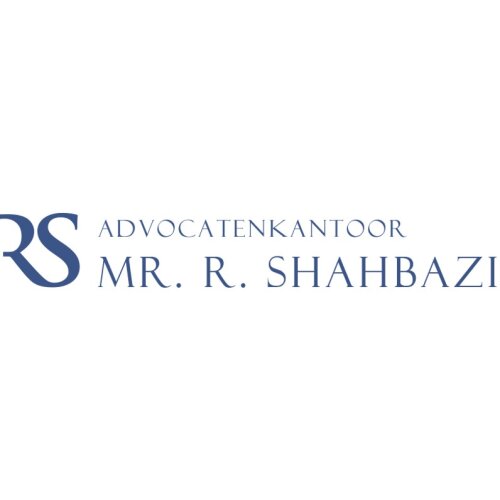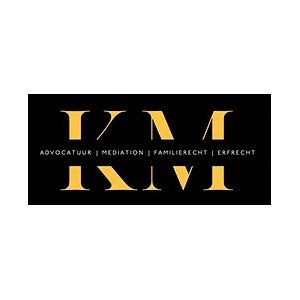Best Child Visitation Lawyers in The Hague
Share your needs with us, get contacted by law firms.
Free. Takes 2 min.
Free Guide to Hiring a Family Lawyer
List of the best lawyers in The Hague, Netherlands
About Child Visitation Law in The Hague, Netherlands
Child visitation law in The Hague, Netherlands, is designed to ensure that children maintain a relationship with both parents even after separation or divorce. The primary concern of Dutch courts is the well-being of the child, and they strive to establish arrangements that serve the best interests of the child. Visitation rights, also known as access rights, provide the non-custodial parent with the opportunity to spend time with their child according to an agreed schedule. Legal frameworks are in place to help resolve disputes and create agreements that are fair and considerate of the child's needs.
Why You May Need a Lawyer
There are several situations where individuals might require legal assistance for child visitation issues. These include:
- Disagreements over visitation schedules
- Concerns about the safety of the child during visits
- Modifications to existing visitation agreements due to changes in circumstance
- Enforcement of visitation rights if one parent is not complying with the agreed terms
- International cases where one parent resides in another country
A lawyer can provide valuable guidance through the legal process, represent your interests in court, and help mediate to reach an amicable solution.
Local Laws Overview
In The Hague, child visitation laws are governed by the Dutch Civil Code. The key aspects of these laws include:
- The paramount consideration is always the child's best interests.
- Parents are encouraged to create a joint parental plan that outlines the visitation schedule and parental responsibilities.
- If parents cannot agree, the court may decide on visitation arrangements.
- Both parents have the right and obligation to maintain contact with their children, regardless of custody arrangements.
- Adjustments to custody or visitation can be made through a legal process, ensuring they align with any significant changes in circumstances.
Frequently Asked Questions
What is a parenting plan, and is it mandatory?
A parenting plan is a document that outlines how parents will raise their child after separation or divorce. It is mandatory to create a parenting plan when filing for divorce if you have minor children.
Can grandparents or other relatives seek visitation rights?
Yes, in certain circumstances, other relatives such as grandparents can apply for visitation rights. The court will assess if such contacts serve the child's best interests.
What happens if the custodial parent denies visitation?
Denial of visitation can be addressed legally, and the non-custodial parent can seek enforcement through the courts. It is always best to try mediation first.
Can visitation orders be changed?
Yes, visitation orders can be modified if there is a significant change in circumstances, such as a parent's relocation or changes in the child's needs.
How are visitation disputes resolved?
Disputes can often be resolved through mediation, but if an agreement cannot be reached, the matter can be taken to court.
Is there a standard visitation schedule?
There is no standard schedule, as arrangements are based on the unique circumstances of each case and what is considered best for the child.
What is supervised visitation?
Supervised visitation is when a neutral third party observes the visit, typically required in cases where there are concerns about the child's safety.
What factors does the court consider in visitation cases?
The court considers the child's safety, welfare, wishes, and the parents' ability to cooperate and ensure the child's needs are met.
Can a parent relocate with the child?
Relocation can be complex. The relocating parent needs permission from the other parent or the court to modify the visitation arrangement.
What if one parent lives in a different country?
International visitation arrangements require additional considerations for travel and maintaining communication. Legal advice is crucial in such cases.
Additional Resources
Here are some additional resources that may be helpful:
- The Dutch Council for Child Protection (Raad voor de Kinderbescherming)
- Mediation services specialized in family law
- Legal aid clinics offering free or low-cost advice
- Governmental websites providing information on child law
Next Steps
If you require legal assistance with child visitation in The Hague, consider the following steps:
- Consult with a family law lawyer to discuss your situation and explore the legal options available to you.
- Engage in mediation to try and resolve disputes amicably before going to court.
- Prepare all relevant documents and evidence if legal proceedings are necessary.
- Reach out to local legal aid organizations if you need financial assistance in obtaining a lawyer.
Taking prompt action and seeking professional advice can help ensure that the visitation arrangement serves the best interests of the child and is in compliance with Dutch law.
Lawzana helps you find the best lawyers and law firms in The Hague through a curated and pre-screened list of qualified legal professionals. Our platform offers rankings and detailed profiles of attorneys and law firms, allowing you to compare based on practice areas, including Child Visitation, experience, and client feedback.
Each profile includes a description of the firm's areas of practice, client reviews, team members and partners, year of establishment, spoken languages, office locations, contact information, social media presence, and any published articles or resources. Most firms on our platform speak English and are experienced in both local and international legal matters.
Get a quote from top-rated law firms in The Hague, Netherlands — quickly, securely, and without unnecessary hassle.
Disclaimer:
The information provided on this page is for general informational purposes only and does not constitute legal advice. While we strive to ensure the accuracy and relevance of the content, legal information may change over time, and interpretations of the law can vary. You should always consult with a qualified legal professional for advice specific to your situation.
We disclaim all liability for actions taken or not taken based on the content of this page. If you believe any information is incorrect or outdated, please contact us, and we will review and update it where appropriate.














